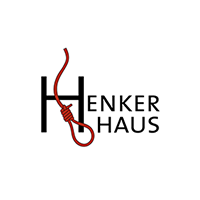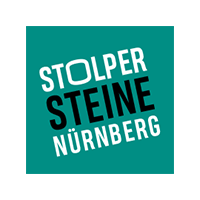Biography of Franz (Franc) Wertheimer, written by his daughter Laura Wertheimer
Nuremberg, Germany, a city of medieval buildings and winding sandstone streets, was a charming and vibrant city of roughly 400,000 residents, including 9,000 Jews, in 1927. The Jewish community of Nuremberg was the second largest in Bavaria, and many of Nuremberg’s Jews were self-employed merchants, industrialists and professionals. Into this community, Franz Wertheimer, the only child of Erich and Sophie Wertheimer, was born at home on September 26, 1927. The family lived at Wodanstr. 76. L, in a large, second floor apartment with a living room, dining room, kitchen, laundry, bathrooms, bedrooms and front and back balconies.
Both sets of grandparents lived a trolley ride away in Nuremberg as did his aunts, uncles and cousins. He spent much time with family on weekends and holidays. After grandmother Cilli Prager died in 1930, his Opi Fritz would join the family on motoring holidays. One favorite trip was to Garmisch-Partenkirchen, a resort at the foot of a large mountain, the Zugspitze. There, the family took up curling, skiing, sledding and skating. Franz loved to take the cog railway from Garmisch to the top of the Zugspitze with his Opi. Returning, they would sip hot soup and his Opi would tell stories about his childhood.
Franz first learned about Hitler and the Nazi party when he went with his Opi to vote in 1932. This was a critical vote in which the Nazi party sought to gain control of the government. The German constitution required all German citizens to vote, and voting was supposedly by secret ballot. Franz and Opi went into the voting booth and drew the curtain. Opi pointed with his pencil to a Nazi official who stood on top of the voting booth on a ladder, seeking to observe how citizens voted. Opi shielded his ballot with one hand and marked it. As they left, Opi explained the political climate to 5 year-old Franz.
By the time Franz was ready to enter school in September 1933, virtually all Jewish children were barred from attending public school. (Because German citizens paid dues to their respective religious organizations through the state, the government could readily identify Jewish families.) Franz went to the Israelite School in Furth, a day school for children in grades 1-12. On his first day of school, Franz received from his parents a large paper cone filled with school supplies and other treats.
In order to get to school, Franz had to take the trolley car. He regularly heard passengers complaining about “Jews” and using “Jew” as an epithet. In 1935, the housekeeper of a neighbor reported to the police that Franz had spit at her. While her claim was discredited, Franz became fearful of using the trolley.
In Nuremberg, the parks were turned into stages for Hitler rallies. The public park across the street from the Wertheimer family apartment, where Franz had walked and played, now was ringed with signs proclaiming, “No Jews or dogs allowed.” Franz would watch the rallies from the apartment balcony, with men in uniforms waving a sea of red, white and black flags decorated with the swastika.
Franz was awakened during the night of November 9, 1938 by a huge noise in his bedroom. He opened his eyes to find storm troopers had overturned the wooden wardrobe in his room and were sticking their bayonets into his clothes and toys. Franz was terrified. He saw his father crawl out of the living room onto the balcony and managed to join him, where the two hid behind large potted trees. The storm troopers left without harming anyone in his family.
The following week, Franz sailed with his parents to the United States. Sailing away, Franz sensed he was on a great adventure and looked forward to the future. At the same time, he was anxious: he knew no one but his parents on the ship and did not know a soul in America, apart from his aunt, uncle and cousin, and spoke no English.
Erich, Sophie and Franz stayed with Franz’ aunt and uncle when they first arrived. Franz was enrolled at P.S. 39, even though he did not speak English. On Franz’ first day of school, his parents treated him to an ice cream sundae, which cost a nickel. The next day, his father gave him a nickel for an emergency. Franc used it to buy another ice cream sundae, which landed him in hot water with his parents who lacked the money for such treats.
From the day of his arrival, Franz determined to master English. He changed his name from the German Franz to Franc and taught himself to speak and write perfect English. After school, he helped his mother wrap and deliver the chocolates that she sold door to door, up and down the streets of Kew Gardens. Before dinner, he played checkers and chess with his Opi, who had joined them in Kew Gardens.
With strong skills in English and in the sciences, Franc was accepted to a special public school for gifted children and graduated as the valedictorian of his class. He graduated from Brooklyn College, summa cum laude, Phi Beta Kappa, and obtained a graduate degree from Columbia University. On countless afternoons and weekend, he played bridge with friends and wrote limericks to amuse them. Proud of his American citizenship, he served in the U.S. Army.
He married his college sweetheart and they had two children. Franc and a partner founded a defense consulting business, ManTech International, which quickly grew to be a large company with locations world wide. Franc’s word was his bond and he was respected by customers and competitors.
Although Franc worked very hard, his family came first. He never forgot that he and his parents fled their homeland in November 1938 with only the clothes on their backs, lucky to get out alive, and succeeded in their new country through hard work. Education of his children – academic, cultural, and religious—was of paramount importance. When his children complained about his insistence on excellence, he responded that the only gift he could give them was the gift of education, so they could make the most of their lives.
A man of integrity and honor, who sought to be responsible and do what was right (without expecting anything in return), Franc Wertheimer was a mensch within the meaning of the Yiddish word.
He died of cancer in 2002.
Laura Wertheimer, March 14, 2021



